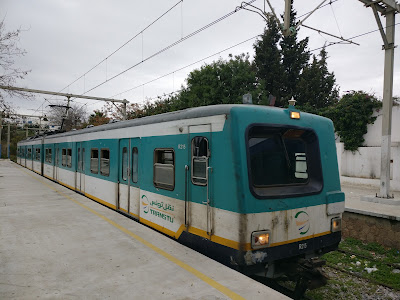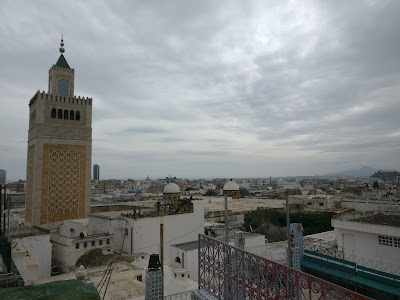Defining "Developing" Requires an Exercise in Firsthand Comparisons
It was only when the taxi sped out of Malta International Airport that I realized the meaning of the word "development." I had just spent a weekend in Tunis, only a short one-hour flight in North Africa. Fascinating as the capital of Tunisia was, with its combination of colonial French and medieval architecture interspaced with the hustle and bustle of everyday life, the city was clearly rough on the edge. Streets were overrun with trash, watery sewage, and feral cats and dogs. The pavements, buildings, and markets were crumbling from the lack of repair and random touts following tourists for a quick "gift."
That daily reality of being in Tunis, likely a minor inconvenience for the long-term resident, becomes so much more pronounced on the smooth ride back home from the airport in Malta. The smooth tarmac of the highway transversing the island had no trash by its side, no one trying to aggressively muscle their way in, and certainly no potholes filled with unknown fluids. The driver was relaxed, just like everyone else at the airport or when I got back to my own neighborhood. I needed not to fend off strangers looking for "friends" just to make my way across town.The very visual contrast between two cities, a mere hour apart, puts the meat on the usually abstract discussions of "developed" and "developing" countries. Yes, numbers can suffice in the definition. Malta's per capita GDP of more than USD 34,000 is nearly ten times that of Tunisia's USD 3,800. But without having visited both places and walked their streets amidst locals, it is difficult to pinpoint exactly what is "developing" about a developing economy. The shortcomings are simply too unique to each place to be generalized.
Perhaps, even more importantly, using just economic numbers to define underdevelopment also leaves out the non-physical aspects of it. Poverty in Tunis is not necessarily impressed upon a visitor through the crumbling trains, roads, and buildings. It is, instead, made far more memorable through a human aspect: people tossing out garbage with little regard for passersby, garbage pickups that do little about the liquid sewage, and the touts who think little of how their aggressiveness is highly counterproductive for attracting more moneyed tourists to the country.In other words, the mentality of poverty stands out far more than any physical infrastructure deficit. People, like in Malta, are relaxed in how they approach others when they have regular incomes that allow them to put food on the table. Those who hustle on the streets of Tunis and other poverty-stricken cities do not have that sort of luxury. They are forced to think short-term, maximizing income today with the hope of escaping their lot, even if they know what they do is unsustainable. That desperation to survive economically is quintessential in any society with too many people fighting for limited resources.
But it is only with firsthand comparisons that these realizations become obvious. The culture of hustling is not necessarily a developing country phenomenon. Any startup in any society claims to hustle so that it can grow and prosper, even though its employees likely have other choices for employment outside the startup. Insufficient public services, such as garbage pickups, plague plenty of the world's richest places as well, since workers can use the power of strikes and boycotts to force policy changes. These rich country workers choose to strike due to sufficient savings, while the Tunisians minimize work to protest low pay.Every set of numbers that show Malta's development vis-a-vis Tunis shows that lack of choice among the latter's residents. Higher traffic deaths in Tunisia symbolize improperly maintained roads and cars, coupled with the need for all to go quickly from A to B to minimize lost time and maximize earnings. Those figures further impact life expectancy as lives are cut short before natural causes play out. But even shorter lives cannot reduce the ranks of the touts, who deal with one of the world's highest formal unemployment rates.
The firsthand observations show whether the same act is done out of a pure struggle for day-to-day survival, or as a mechanism to motivate those who already have plenty of material comfort to not sit on their laurels and continue to strive for something better. As the comparisons play out, one can come to appreciate just how lucky one would be to hustle and fight for better rights out of a personal choice for self-improvement, rather than a must just to get on with the very basic necessities of life. That ability to make an economic choice, more than anything else, is a sign of development.




Comments
Post a Comment